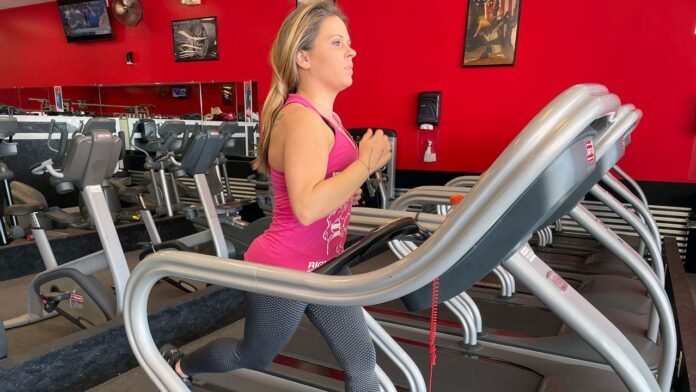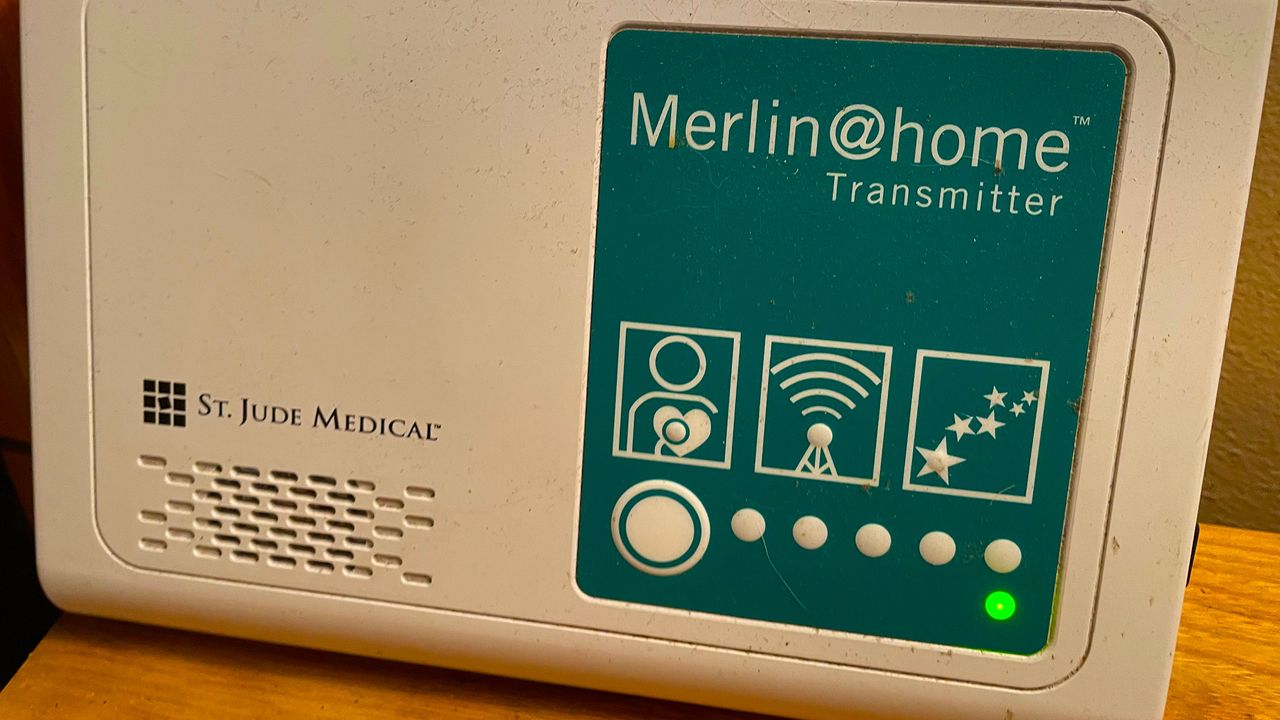DADE CITY, Fla. — Jamie Oudit says she first felt something wasn’t right in high school.
What You Need To Know
- After years of suspecting something was wrong with her heart, Jamie Oudit was diagnosed with an extra electrical pathway
- Medications and a pacemaker help Oudit manage her condition
- Oudit says the first doctor she saw dismissed her symptoms, and she urges people to find doctors who will take their concerns seriously
- Oudit’s current cardiologist also says it’s important for patients to advocate for themselves
“I mean, in high school, you don’t really know what ‘it doesn’t feel right’ is supposed to feel like,” said Oudit, now 32. “My mother took me to a cardiologist, and that cardiologist was like, ‘Oh, you’re young, you’re fine, everything’s good.'”
Oudit said that doctor didn’t suggest a Holter monitor, a small device that tracks heart rhythms, or medications or order lab work.
“I was like, ‘Okay, whatever you say,'” Oudit said.
Years later, she was at work when she got a feeling something bad was going to happen.
“I felt fine, but I’ve always listened to my gut. I went to the hospital, and I said, ‘Something’s about to happen.’ And they looked at me like I was crazy,” Oudit said.
Still, the medical team hooked Oudit up to monitors.
“Ten to 15 minutes later, the monitor started just screaming. My heart rate had gone from a normal 89 beats per minute to 150, then 160, then 170, and then it reached 185. At that point, I had, like, four doctors around me, a crash cart, six nurses, and they’re like, ‘What’s going on?’ And I was like, ‘I don’t know,'” she recalled.
Oudit said that was the first time what she experienced for years was captured by medical equipment. Shortly after that, she was introduced to Dr. Binu Jacob, a cardiologist and director of cardiac rehab at AdventHealth Zephyrhills.
“Young ladies between usually the ages of 15 and 35, it’s very common to have palpitations. All of us deal with common factors that cause palpitations, like dehydration, overly worked or stressed, or things that can commonly happen with your thyroid, or your hemoglobin with anemia, or fever,” said Jacob. “But in Jamie’s case, she was having it so commonly that it was affecting her quality of life that I had a suspicion that there was something more to this.”
Jacob ran tests and found Oudit was suffering from tachycardia, or a fast heart rate, and a much more rare condition known as a fasciculoventricular pathway, or an extra electrical pathway in her heart.
“Usually, when patients are younger, we pick up their accessory pathways that she had on the left side, but in terms of a fasciculoventricular pathway, I’ve only read about it in textbooks. She was actually one of the first patients I’ve ever met with that particular pathway,” Jacob said.
Oudit said Jacob told her the pathway couldn’t be ablated, or removed, and that medications could help but not get rid of the problem.
“I’ve always been very matter-of-fact. Like, it is what it is, no point in stressing and worrying about things we can’t control, and this is very much one that we can’t control,” said Oudit.
Six months to a year later, Oudit said she passed out at work. She went in for another test with Jacob, during which her heart stopped. Jacob recommended a pacemaker, which would help with missing or skipped heartbeats but not tachycardia. It did allow Jacob to monitor what was going on with Oudit’s heart without her having to be in a hospital setting.
“Once he was able to see that, he’s like, ‘Okay, we’re going to do some more ablations,’ because my heart rate for no reason, even with medication, continued to break through,” Oudit said.
Jacob recommended ablating her AV node.
“I was spending weeks at a time in the hospital, trying to get my rate under control,” Oudit said. “He explained to me, ‘When we ablate the AV node, your heart will never beat on its own again. You will be 100% dependent for every beat on your pacemaker. It’s like walking life support.'”
Oudit said Jacob told her with this ablation plus the pacemaker, she would only experience tachycardia very rarely.
“So, we went ahead and we did it, and my life has been wonderful since then,” Oudit said.
Now, Oudit visits the gym five days a week. She runs on the treadmill, which is something she said she couldn’t do before. She’s able to keep up with a busy life that includes kids’ schedules and running a business. A monitor sits by her bedside that reads her pacemaker every night and sends a report to St. Jude. If she feels something isn’t right, she can push a button and it will do a reading, transmit that to St. Jude, and a report can be sent to Jacob.
(Photo courtesy of Jamie Oudit)
“He’ll decide from there—do I need to see you in office, or was it just kind of like a fluke?” Oudit said.
Jacob said patients in Oudit’s age group can be misdiagnosed with anxiety when it’s actually a heart condition that needs to be addressed.
“I think it’s important that patients are their own advocates, and that’s what we’re talking about. And, of course, prevention is key. In Jamie’s case, she couldn’t do the exercise that she wanted until she treated her heart condition, and now she’s back to a healthy lifestyle,” Jacob said.
Oudit also notes it’s important not to give up on advocating for yourself.
“I tried to say something. They didn’t listen. And to me, that’s where I tell people: find a doctor who will listen to you,” Oudit said.
Jacob said it’s also important to consult with your doctor before starting a new fitness routine, particularly if you’ve been inactive for the last six months to one year or have conditions like diabetes or high blood pressure.









